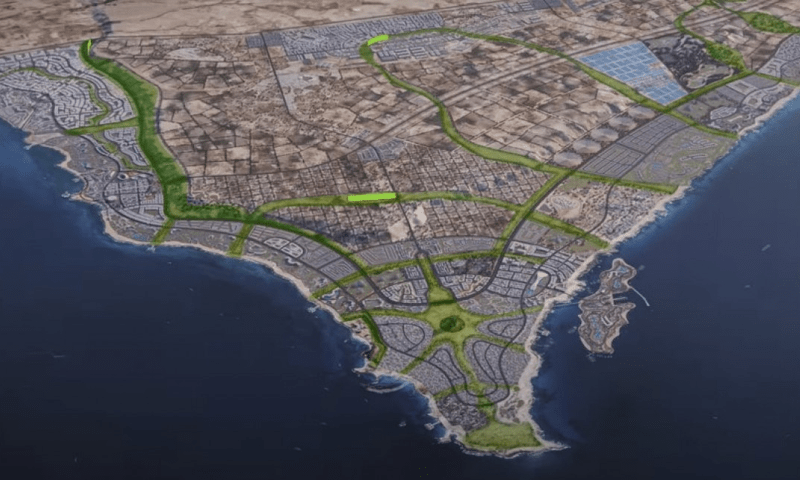The United Arab Emirates has recently concluded a significant deal with Egypt, acquiring the coastal town of Ras al-Hikmah for a staggering $35 billion. Egyptian Prime Minister Mostafa Madbouly announced that the UAE would make an initial payment of $15 billion, with the remainder to be settled over the course of two months.
Described as the “largest foreign direct investment in an urban development project in the country’s modern history” by Madbouly, Ras al-Hikmah will undergo extensive development. The town’s transformation will encompass residential areas, tourist resorts, educational institutions, an industrial zone, a central financial district, an international marina, and an airport.
Located approximately 200 km west of Alexandria, Ras al-Hikmah occupies an area renowned for upscale tourist destinations and pristine beaches frequented by affluent Egyptians, particularly during the summer season.
Egypt has grappled with a protracted economic downturn marked by a persistent foreign currency deficit, exerting pressure on the Egyptian pound, government finances, and local businesses. Inflation surged to unprecedented levels last summer, compounded by escalating debt and revenue losses from the Suez Canal following attacks by Yemen’s Houthi movement on shipping in the Red Sea.
Despite a $3 billion financial assistance package from the International Monetary Fund (IMF) in December 2022, Egypt’s economic recovery faced obstacles as the government delayed transitioning to a flexible exchange rate system and encountered sluggish progress in selling state assets.
Conversations with Egypt regarding bolstering its IMF loan program have been promising, with the IMF stressing the necessity for a comprehensive support package to address economic challenges exacerbated by conflicts such as the Gaza war.
Since assuming office in 2013, President Abdel Fattah al-Sisi has relied heavily on bailouts from wealthy Gulf states to sustain Egypt’s economy. However, support from Gulf nations has dwindled over the past two years, contingent upon Egypt implementing free-market reforms and offering lucrative investment opportunities.
The economic downturn has intensified calls for Egypt’s leadership to reassess large-scale infrastructure projects synonymous with Sisi’s tenure, such as the construction of a new capital. Nevertheless, Sisi remains steadfast in his belief that such mega-projects will attract substantial foreign investment and generate employment opportunities on a massive scale.


